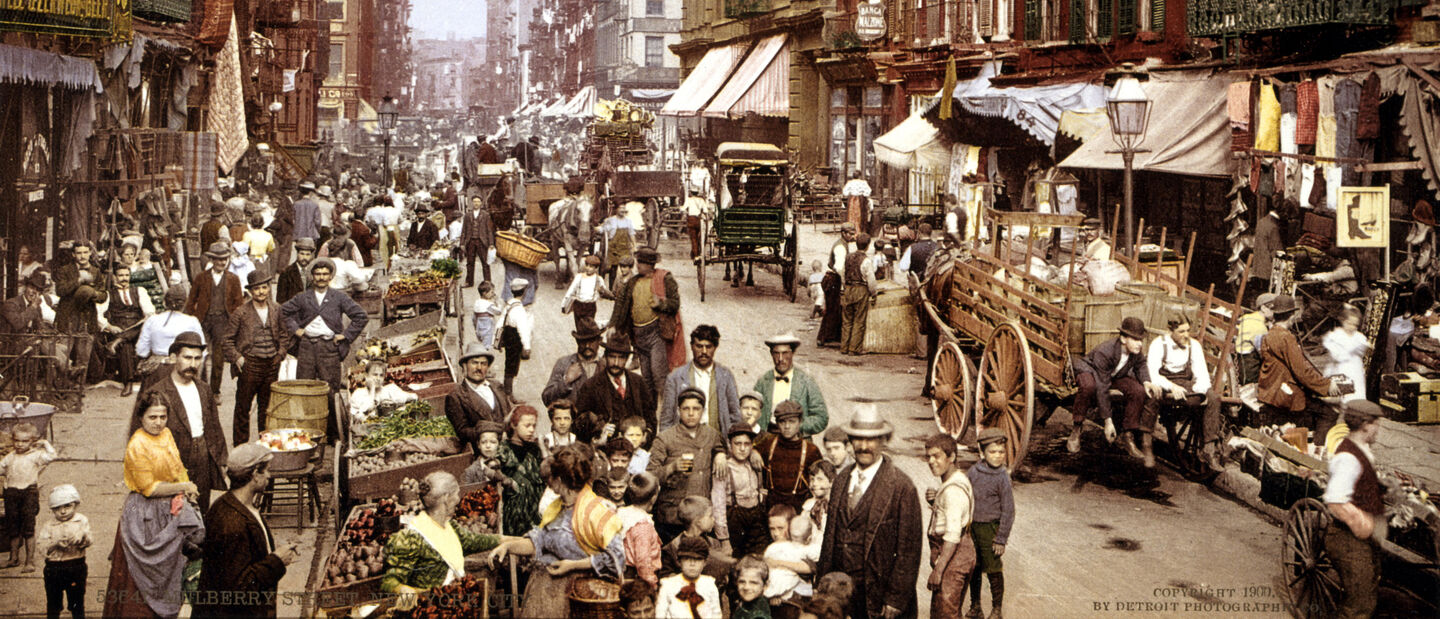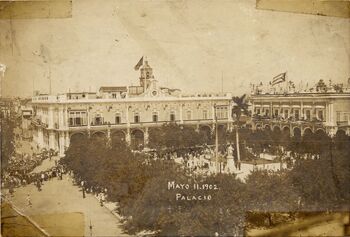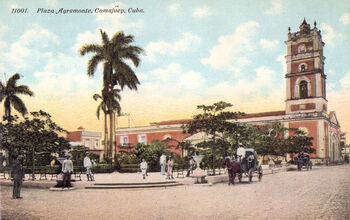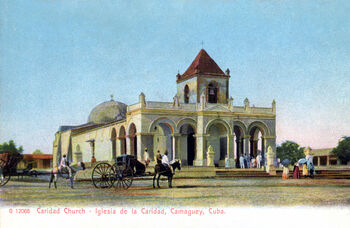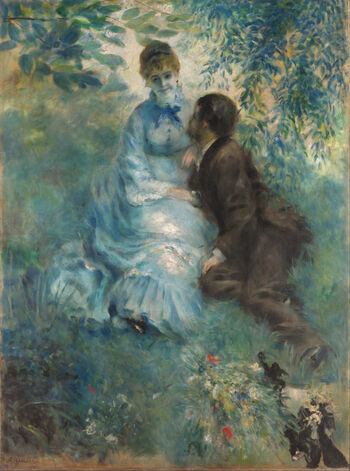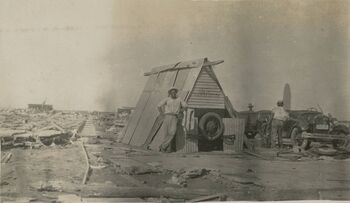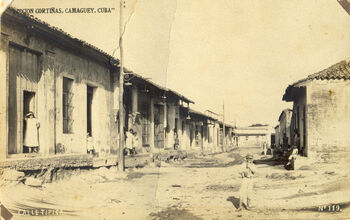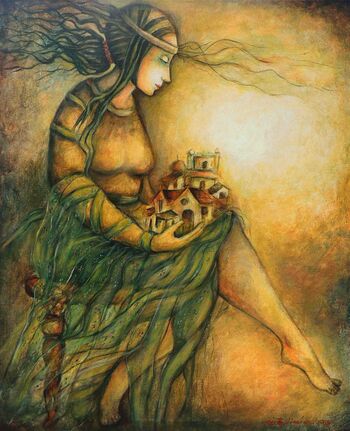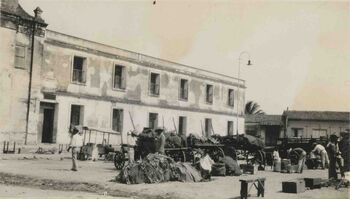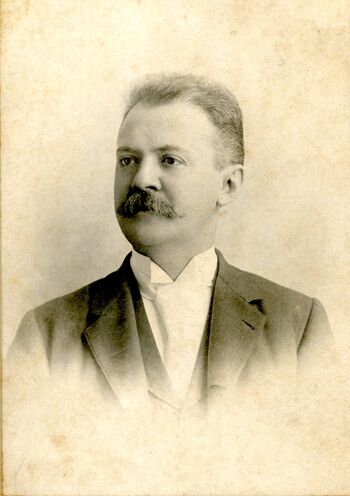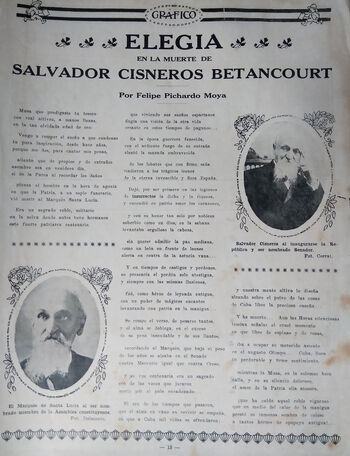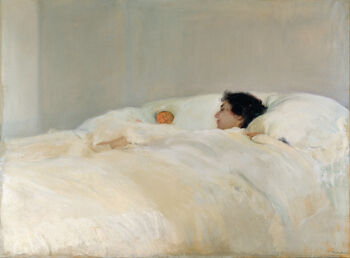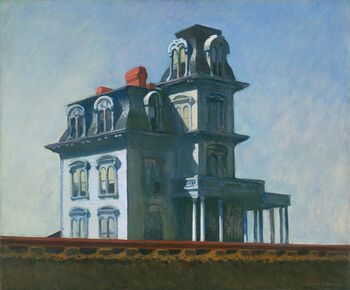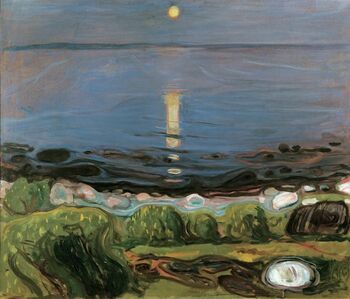New York, September 5, 1900
Audience granted by president McKinley
On August 19th inst. President McKinley granted an audience to Señor Salvador Cisneros Betancourt, the well-known Cuban patriot, ex-Marquis of Santa Lucía, and twice President of the Cuban Republican Government, which Señor Cisneros had requested in order to lay before the President an important statement relating to the administration of affairs in Cuba and a petition for the amendment of orders issued by the Military Governor of the Island, particularly in connection with the approaching elections for Members of the Constitutional Convention.
No more authorized and genuine representative of Cuba could voice the needs and aspirations of its people and lay them before the President and the people of the United States, and no other is more entitled to credence or worthier of the full confidence of our citizens.
Señor Cisneros Betancourt
Señor Salvador Cisneros Betancourt belongs to the oldest and best known families of Cuba and inherited the title of Marquis of Santa Lucía with vast entailed estates. His early education was largely received in the United States, and from his youth he took a leading part in the Revolutionary movements for the independence of Cuba. At the outbreak of the bloody and ruinous Ten Years War (1868 to 1878) Mr. Cisneros, after having publicly resigned his title of Marquis, which he never again has resumed, led the Cuban patriots, being at once elected a Member of the Revolutionary Committee and, soon after, President of the Republican Cuban Government. He shared the hard-ships of the Cuban forces in the field, ever retaining the warm affection and fullest confidence of the people, which he enjoys to this day. At the close of the War, notwithstanding the extremely cordial offers from Martinez Campos, the Spanish Captain General and Commander-in-Chief of the Spanish Army in Cuba, Mr. Cisneros was one of the very few Cuban patriots who utterly refused any compromise with Spain, clearly foreseeing that the truce would be short and that a new revolution would eventually break out. He preferred to leave the Island and come to the United States to live here poorly rather than to remain in Cuba, where, with less firmness of principle, he could have been in affluence and enjoyed the special favor of the Spanish Government, who justly attached the utmost importance to his attitude. He only returned to Cuba when the last Revolution was dawning and was mainly instrumental in organizing it in Puerto Príncipe. Although now well advanced in years, he again took the field, for a second time sharing the hardships and dangers of the troops, and was for a second time elevated to the Presidency of the Cuban Republican Government. Among other honorary charges he is now President of the Association of Veterans of the Cuban Army. His sterling honesty, unflinching sense of duty, and firm, uncompromising patriotism, are duly recognized, and his name is known and respected throughout the Island as a symbol of all that the Cubans have suffered and fought and died for, i. e., the independence of the Island. There is no more popular man in Cuba or more justly so. Señor Cisneros is a lover of our institutions and a warm friend and admirer of the United States, where a large part of his early life was spent, and which he has ever held as a model to his fellow-citizens. The acts of the Military Government of Cuba have, however, been the cause of much alarm and anxiety to Señor Cisneros, as well as to the great majority of Cuban patriots, and this has caused his visit to the United States, as well as that of other well-known Cubans who accompanied him.
Full Confidence in the American People
Señor Cisneros, therefore, while condemning the Military System, which he and the great majority of the Cuban people charge with grave and dangerous errors in Cuba, has the fullest confidence in the American people, and is convinced that if the true facts be laid before them, all the evils under which Cuba suffers will be corrected and future dangers avoided.
After his interview with President McKinley on August 10th, Señor Cisneros B. prepared and issued an appeal to the American people, which was published in the New York Herald of September 2d, and in answer to which Washington advices of September 4th, as reported in the New York Herald of that date, stated that the President had ordered an investigation and report of the evils complained of, intending to apply immediate remedy. As there were a few omissions in the “Appeal” as published in the Herald, it is here given in full.
APPEAL TO THE AMERICAN PEOPLE
During a struggle for independence of fifty years, including two bloody wars which robbed Cuba of thousands and thousands of its best sons and laid waste its fields and towns, destroying the greatest part of its wealth, the people of the Island unanimously looked to the United States for moral support and confidently relied on the sympathies of its liberty loving people. They felt that a community of purpose and the natural intercourse due to their geographical position created close and strong ties between Cuba and the United States; nay, a large portion of our citizens believed that by natural gravitation the day would come in which the Pearl of the Antilles would add one more star to the glorious galaxy of the Union. Under this leading idea a large portion of the youth of both sexes of Cuba was sent to receive education in the United States, and this in spite of the strenuous opposition of the Spanish Government, which early foresaw the tendencies of such a movement, and it can be safely asserted that the percentage of Cubans educated in the United States largely exceeds that from any other country, while it can also be maintained, with equal safety, that outside of their own native land Cubans felt nowhere else as much at home as in the United States, and that the latter enjoy the sympathies of no other country as extensively as those of Cuba. Mutual commercial interests immensely strengthened these close relations, the United States being the greatest consumer of our staple products and Cuba offering, on the other hand, a ready market for American manufactures.
Grateful to the United States
Lastly, by the intervention of the Government of the United States in the late War, at a most critical period of Cuba’s deadly struggle, such an invaluable service was rendered to the cause of the independence of the Island as can never be effaced from the memory of its sons, or fail to secure their lasting gratitude. No fear, then, that, any Cuban, true to his country and to himself, when discussing the present and future relations between Cuba and the United States may be unfair, and still less, hostile, and the writer certainly would not be the exception. Faithful to the traditions of his people and of his youth, the writer has unshaken confidence in the absolute fairness, political integrity and innate love of liberty and justice of the people of the United States and firmly believes and holds that when informed and in full possession of the facts, they will hasten by their verdict to correct the errors of their representatives in Cuba, to remedy the evils which now afflict and threaten the Island, and to advance one step further in the glorious work of consolidating the liberty of America by aiding the immediate and firm establishment of the independence of Cuba, to which they stand solemnly pledged by the voice of their representatives in Congress. This appeal to free men, ready to help those who would and deserve to be free, will then be made without malice and without fear.
Evils of the Military Government
It were superfluous to enlarge here on the evils of military government; the system is abnormal and the infliction of it on a community can only be excused by extraordinary conditions and should even then be as short lived as possible. Whether or not it was wise to establish such a government in Cuba at the close of the War will not be discussed here, since no useful purpose would be subserved thereby. This system was established in Cuba, and, while it may have had some advantages, it has certainly occasioned great evils and threatens still greater ones. No detailed arraignment of that system as applied to Cuba will be attempted now, but a few of the more prominent charges against it will be specified, leading up to the recent military order calling for the election of a Constitutional Convention, which has caused such deep and widespread alarm throughout Cuba. It will be shown that the military authorities in Cuba have been arbitrary in their proceedings; that they have disregarded the rights of the people of Cuba; that they have often acted as conquerors in a conquered land rather than as the representatives of a free people helping those who had struggled for freedom; that, in utter ignorance of the language, customs and tradition of the people, they have deeply wounded their feelings and dignity.
Patronage to Gain Support
That they have unlawfully discriminated against the Cuban people and in favor of adventurers, favorite employees and “carpet-baggers” from the United States, with which the Island is overrun; that they have used patronage at the expense of the public treasury to gain supporters, either for political or worse purposes, and that under such a baneful system grave frauds have been and are being daily perpetrated
Military Government have done less than the Spaniards
That it is a fact, however humiliating its admission must be to both Cubans and Americans, that a great deal less has been done by the Military Government in Cuba to repair the ravages of the War and restore to the country its lost prosperity than was done by the Government of Spain during the same period of time at the close of the bloody and destructive Ten Years’ War, so that industry and enterprise languish and misery prevails throughout the greater portion of the Island.
Cuba Restless under Oppression and Threatened Annihilation
Lastly, that the independence of the Island and the welfare, nay, the very existence, of its people are gravely threatened to-day, all of which has produced such, general alarm and just discontent that it has taken the constant effort of the more sober-minded and temperate leading Cubans to prevent an outbreak which would repeat in Cuba the disastrous scenes we have witnessed in the Philippine Islands.
Here are some of the facts on which such charges are based:
Basis for the Charges
A large portion of the Cuban population in the interior of the Island is affected by extreme poverty, due to lack of employment through the actual stagnation of public works, owing, among other reasons, to the Foraker resolution, under which no concessions were to be or have been given in Cuba. Practically, the only works done have been those of sanitation in some of the large cities for the protection of the American troops against yellow fever (from which the Cubans are absolutely immune), where those troops are quartered, and for the improvement of the buildings which the officers of those troops and employees of the Military Government occupy, and the comfort of the latter, nearly one million dollars ($1 000 000) having been devoted to such purposes.
How Public Works are Carried On
While there is a so called Department of Public Works, stocked with employees, to which further reference shall be made, the public work that has been done in Havana has been mainly done without any competition or advertisement the Military Governor’s practice having been to call some favorite American contractor and give him the work on his own terms. Thus, a Mr. N. Scovill, an adventurer, who during the war traveled around the Cuban camps, has been given in Havana much of the work done there. It is a matter of public notoriety in Havana that Mr. Neeley, now under trial in the United States in connection with the Post Office frauds in Havana, established a large brickyard in that city, in which the bricks for the Havana sewers and all other public works ware to be manufactured, which brickyard is now in possession of the Military Government of Cuba, and the assertion has been publicly made, and remains uncontradicted, that clerks in the employ of the Military Government hold the stock of that same brickyard.
Frauds and Discrimination Against Cubans
The Post-Office frauds and frauds committed in the construction of the useless Tricornia Railroad are a matter of public record, but still greater frauds would be unearthed were an investigation to be instituted into the Custom House Department, and into the relations of employees of the Military Government with official matters in Cuba.
At the Public Works and Custom House offices throughout the Island, and particularly in Havana, employees born in the United States and favorites of the Military Government, doing no more work than the Cuban employees and in a large number of cases not so experienced, almost uniformly receive a much larger pay than the latter This partiality extends to merchants born in the United States and doing business in Havana, who are unlawfully favored in the Custom House valuations on imported goods, to the detriment of Cuban born merchants.
While pretending to prepare the Cuban people to assume full control of the Government of the Island, vacancies in the various departments are filled by the Military Governor with employees from the United States. There are several such in Public Works and the evil is aggravated by the fact that these appointees are entirely unacquainted with the language and customs of the country and become obnoxious by their overbearing manner.
Blunders of Military Government
The errors committed by the Military Government in the management of legal questions have been numerous and one of the most glaring is the blunder at the last municipal elections, where, after the law had been formulated and candidates nominated strictly in accordance therewith the Military Authorities discovered they had made no provision for representation of the minority and ordered a change in the law to remedy the evil But, as it was too late to make this correction extensive throughout the whole of the Island, it was made only in the City of Havana, and thus the extraordinary spectacle was presented of an election held in the Island under practically two different laws, Í e., one for Havana and one for the rest of the Island. The writer has called attention to the deficiencies of this Electoral Law in the petition presented to President McKinley on the 19th inst. at the interview granted by the latter to him.
Lawless and Arbitrary Exercise of Authority
The arbitrary action of the military authorities and their overbearing attitude towards the people of Cuba has severely tested the patience and self-control of the Cubans; its various functionaries generally assuming an air of offensive superiority and acting as if the people had no rights which the Military Government was bound to respect. Soldiers have repeatedly taken passage in the railroads, paying for third-class fare, and, after being admitted to the train, have boldly and deliberately walked into the first-class carriages and refused to pay the difference, which is considerable.
About two months ago a few cases of yellow fever having appeared among the troops of General Lee, who is quartered in the neighborhood of Marianao, one of the suburbs of Havana, a general order was issued to have all the stores closed where liquor was sold, in order to prevent the soldiers and officers from obtaining liquor. It should be stated that the stores referred to are not 1 liquor saloons’ as known here, but really grocery stores, in which provisions of all kinds are sold, and also liquors. The arbitrary nature of this order and actual hardship that it inflicted on both the owners of the stores and the neighbors need no comment.
General Wood Overrides the Law
A Commission was appointed to frame the Electoral Law, to which, without any apparent reason, American as well as Cuban members were appointed. General Wood, the Military Governor of Cuba, drafted specific instructions to which the Commission were to conform, and in accordance with which a majority of said Commission presented their plan of Electoral Law. From this plan, however, the minority, composed mainly of the American members of the Commission, dissented and presented a separate draft of Electoral Law, which, against the vote of the majority, was accepted by General Wood. The effect of the restrictions placed by General Wood on this Commission to influence their labors was such that at least one of the Cuban Commissioners resigned his charge, A second Commission was appointed to revise and codify the Spanish Laws, and American members, without any special qualification were again appointed by General Wood as members of said Commission, although without knowledge of Spanish jurisprudence, imperfect acquaintance of the language, and unnecessarily, to say the least. As in the previous case, differences occurred, as might be expected, frequently between the Cuban and American members; and when this occurred General Wood uniformly sided with the latter. Still another Commission was appointed to frame the Havana Charter, to which, surprising as it may appear, American members were again appointed. The Charter was drafted and shown by General Wood, the Military Governor, to the Mayor of Havana, who acquiesced in its provisions and signified his readiness to advocate it before the Common Council. And yet, before presenting it to the latter body, this Charter was altered by the Military Government.
Havana Charter Altered
When transmitted to the Aidermen the latter expressed their surprise at the alterations, stated that they could not approve of the Charter as thus changed, and added that rather than do that they would resign their offices. General Wood assured the Mayor that the necessary corrections would be made so as to make the Charter acceptable, but after several interviews on the subject he informed the Common Council that he would insist on reserving to the Military Government the control of Public Works and Works of Sanitation, and the Charter with this provision was forwarded to the Common Council of Havana, who, by a vote of twenty-two (22) to one (1), rejected it. It should be furthermore observed that this Charter was to be applied only to the City of Havana, and that no provision had or has been made for any other city in Cuba.
So-called Independence would be a Criminal Farce
This action of General Wood acquires additional significance from the fact that, as reported in Cuba, the Secretary of War and several members of the Military Government in Cuba have stated that the United States intended to keep control of the Custom House, Public Works and Sanitary Works, under which conditions it is needless to say that the so-called independence would simply be a criminal farce.
The Military Government have made extensive use of the patronage at their command for political bribery, a system having been adopted of large and unwarranted salaries paid for practically no services and with the sole object of securing support, if not of shielding wrongdoing.
A Pliant Tool set up as Cubaʼs Representative
One of the most conspicuous instances is the appointment of a so-called Representative of Cuba in the United States (Quesada) at a salary of five thousand dollars ($5,000) a year, and at present parading in Paris with his expenses paid. This young man, unqualified by experience, standing, record or occupation, for any such position, and unfamiliar with Cuba, where he was simply born, is and has been merely the pliant tool of the Military Government for their own purposes. In fact, the sinecure he now holds was actually the reward given by the Military Government to this young man for acts while agent of the Cuban Assembly, for which the latter unanimously deposed him from his charge. Aside from the unfit selection made in this case, why, if a Representative of Cuba in the United States were required, should the appointment be made by the Military Government of the United States? The partner of this Representative, a New York fourth rate attorney, has also been the recipient of large fees through the appointment of the Military Government to codify Spanish laws. The complete list of such cases would be a long one. We have Members of Staff of the Military Government with no work to do and excessive salaries, no less than from fifteen (15) to twenty (20) so-called Inspectors receiving from four thousand ($4 000) to five thousand dollars ($5 000) per year with little or no work to inspect, to say nothing of the members of the so-called Cabinet of the Military Governor. It is from such satellites that letters are often published proclaiming the beauties of the system tinder which they thrive so well and for the stability of which they fervently pray.
Extravagance with Public Funds
This extravagance with the public funds, the frauds already developed and those which are known to exist, make the people of Cuba anxious as to the inversion of the public funds and justly desirous of having an account rendered of the Custom House and other receipts, which, in the aggregate, amount to a very large sum, at least for a country of the limited resources of Cuba.
The Obnoxious Military Order
The preceding statements have prepared the way for the consideration of the last and most important measure of the Military Government in Cuba, i. e., the order calling for the election of Members to the Constitutional Convention, which has created such deep and widespread discontent and alarm throughout the Island. The order reads as follows (with the simple substitution of capitals for small letters in the latter portion of the sixth paragraph):
HEADQUARTERS DIVISION OF CUBA.
HAVANA, July 25, 1900.
The Military Governor of Cuba directs the publication of the following instructions:Whereas the Congress of the United States by its joint resolution of April 20, 1898, declared:
That the People of the Island of Cuba are, and of right ought to be, free and independent.
That the United States hereby disclaims any disposition or intention to exercise sovereignty, jurisdiction or control over said Island except for the pacification thereof, and asserts its determination, when that is accomplished, to leave the government and control of the Island to its people.
And whereas, the people of Cuba have established municipal governments, deriving their authority from the suffrages of the people given under just and equal laws, and are now ready, in like manner, to proceed to the establishment of a general government which shall assume and exercise sovereignty, jurisdiction and control over the Island.
Therefore, it is ordered that a general election be held in the Island of Cuba on the third Saturday of September, in the year nineteen hundred, to elect delegates to a convention to meet in the City of Havana, at twelve o’clock, noon, on the first Monday of November, in the year nineteen hundred, to frame and adopt a constitution for the people of Cuba, AND, AS A PART THEREOF, TO PROVIDE FOR AND AGREE WITH THE GOVERNMENT OF THE UNITED STATES OPON THE RELATIONS TO EXIST BETWEEN THAT GOVERNMENT AND THE GOVERNMENT OF CUBA, and to provide for the election by the people of officers under such Constitution, and the transfer of Government to the officers so elected.
The election will be held in the several voting precincts of the Island under and pursuant to the provisions of the electoral Jaw of April 18, 1900, and the amendments thereof.
The people of the several provinces will elect delegates in number proportioned to their populations, as determined by the census, viz.:
The people of the Province of Pinar del Rio will elect three (3) delegates,
The people of the Province of Havana will elect eight (8) delegates.
The people of the Province of Matanzas will elect four (4) delegates.
The people of the Province of Santa Clara will elect seven (7) delegates.
The people of the Province of Puerto Príncipe will elect two (2) delegates.
The people of the Province of Santiago de Cuba will elect seven (7) delegates.
Oppression to Cuba, and Violation of Pledge of United States
Such an order if carried out, would inflict a grievous wrong on the people of Cuba, would rob them of that independence for which they have sacrificed so much blood and treasure, and would be in direct violation in letter, spirit and purpose of the solemn pledge of the people of the United States to the World as consigned in the joint resolution quoted by that very order.
Why should the members of a convention called upon to frame and adopt a Constitution for the people of Cuba and to provide for their election of Government officers be directed «to provide for and agree with the Government of the United States upon the relations to exist between that Government and the Government of Cuba»? These relations are not a Constitutional question, but should and will be properly determined as those with any other country, by the Government of Cuba when duly established. The arbitrary character of this provision needs no discussion, and the grave dangers with which it threatens Cuba are increased by the absurdly small number of delegates provided for in the order During the Cuban Revolution it was estimated that about three hundred thousand (300 000) Cubans were under control of the Revolutionary Government and forty-eight (48) delegates were appointed to frame the Cuban Constitution, and yet the Military Governor of Cuba deems that thirty-one (31) delegates are ample to represent a population of one million five hundred thousand (1 500 000) people. Forty-eight (48) delegates as representatives of three hundred thousand (300,000) people was a high number, warranted then only on account of the exceptional war conditions and situation of the Island, but thirty-one (31) delegates for the entire Island of Cuba is not by any means a sufficient number to organize a Constitutional Convention which shall be truly representative of the diverse interests and opinions of the people of Cuba, and furthermore, there is imminent danger, already evident, of outside pressure from that same Military Government, in such a reduced number.
General Wood to Influence Election
Mention has been already made of the abuse of patronage by the Military Government for political and other purposes, and it is pertinent to add here that General Wood himself, the Military Governor of Cuba, is now on practically a canvassing tour of the Island, of which unquestionably the main object is to influence the elections of candidates to that very Convention, as shown by his speeches. The New York papers have recently reported his speech at Santiago de Cuba, in which threats are ill-concealed under the guise of warning, and in Puerto Príncipe, on the 14th inst., General Wood, addressing a body of electors there, stated that «if the elected Members of the Constitutional Convention soon to be called were not persons of science and experience in the Island and who by their conditions would afford guarantee of stability to the Government elected, the United States would not withdraw from Cuba». General Wood, on the eve of an election in the United States, would not have dared to utter such words before a body of electors. Why should be, in Cuba, endeavor to restrict the free exercise of suffrage, insult the people, and wound their just sense of dignity and manhood by such a threat? What tests of ‘science and experience’ will the Military Governor of Cuba require and who is to supply them? Has he limited the Representatives for the whole Island of Cuba to thirty-one (31) because he fears that there may not be a larger number of candidates acceptable to him?
Significance of Dates Fixed for Election
Another point in this Military Order, which has excited general and unfavorable comment in Cuba is the adjustment of dates to correspond to those of the Presidential elections in the United States. It will be noticed that while the Cuban elections are to take place September 15th, the Convention is not to meet in Havana until «the first Monday in November», just on the eve of the Presidential Election. Why this unnecessary delay in assembling? Is it unfair, in view of the facts already mentioned and this peculiar appointment of date, to assume and to fear, as a large portion of the people of Cuba have assumed and fear, that this Military Order is simply a political measure? Thus, General Wood, in issuing it, makes it appear that the solemn pledge of the people of the United States to grant Cuba independence is to be fulfilled, although, as already shown, no such purpose will be accomplished by said order. Yet, apprehending with only too much reason that the result of this attempted usurpation on the part of the Military Government may miscarry, he puts off the meeting of the Convention until its results and consequences cannot be a factor in the Presidential Election.
Evils Threatened
The foregoing exposition, by no means exhaustive (and which might include some of the blackest crimes that the laws punish), will clearly show to the people of the United States the evils under which the people of Cuba have been and are suffering during the military occupation of the Island, and the still greater evils and dangers which threaten them. They are of such magnitude that the writer realizes they may appear almost incredible to the citizens of this great and powerful and free Republic, loth to admit, as they well may, that their agents and servants have so ignored or misinterpreted the mandate given to them as to so deeply wrong the friendly and weaker people they were sent to protect, and as to endeavor to implant subjection where they were sent to consolidate liberty and independence. Nothing else could, however, be expected from a military regime, however perfect; in fact, the more perfect, the worse for the purpose of justly governing the people. Neither the people of Cuba nor the writer have any charge to mate against the individual or the collective body that constitute the Military Government of Cuba, the employees of which doubtless compare as favorably with, similar employees elsewhere as the military organization will advantageously compare with any other in the world; but a Military Government is by its ven nature arbitrary and despotic, and in a Republic the nearest substitute of the irresponsible power of Kings and Emperors.
Military Oppression Should Cease
It should cease in Cuba. The people of the Island appeal to the people of the United States not to allow its continuance. The people of Cuba, by their courage and sacrifices during two bloody wars and by their patience and selfcontrol under difficult and trying circumstances since, have not only earned their independence, but deserve the confidence and respect of mankind.
The people of the United States, as that of the rest of the world, can rest in complete security that the Constitutional Convention of the Island of Cuba will be controlled by worthy men, who will adopt a constitution which shall efficiently safeguard public interests and afford ample protection to life and property.
Military Order should be Modified
The clause in the General Order No. 301, above quoted, «to provide for and agree with the Government of the United States upon the relations to exist between that Government and the Government of Cuba», should be stricken out from that order as directly opposed to the terms of the Joint Resolution of Congress of April 28th, 1898, as offensive to the dignity and honor of the people of Cuba, and threatening to their independence.
The number of representatives to the Constitutional Convention should be raised from thirty-one (31) to at least sixty-two (62).
Let the United States have Justice Done
The people of Cuba appeal to the people of the United States to see that as a matter of justice and good faith the above changes in the Order are made. Thus, the mutual relations of confidence and respect which should ever bind the people of Cuba and the people of the United States shall be maintained and stimulated, and Cuba, strong in the moral support of the great Republic that showed her the way to liberty, will safely work out its destinies.
New York, August 24, 1900.
Tomado de Appeal to the american people on behalf of Cuba (dated August 24, 1900). New Tork, The Evening Post Printing House, 1900.
